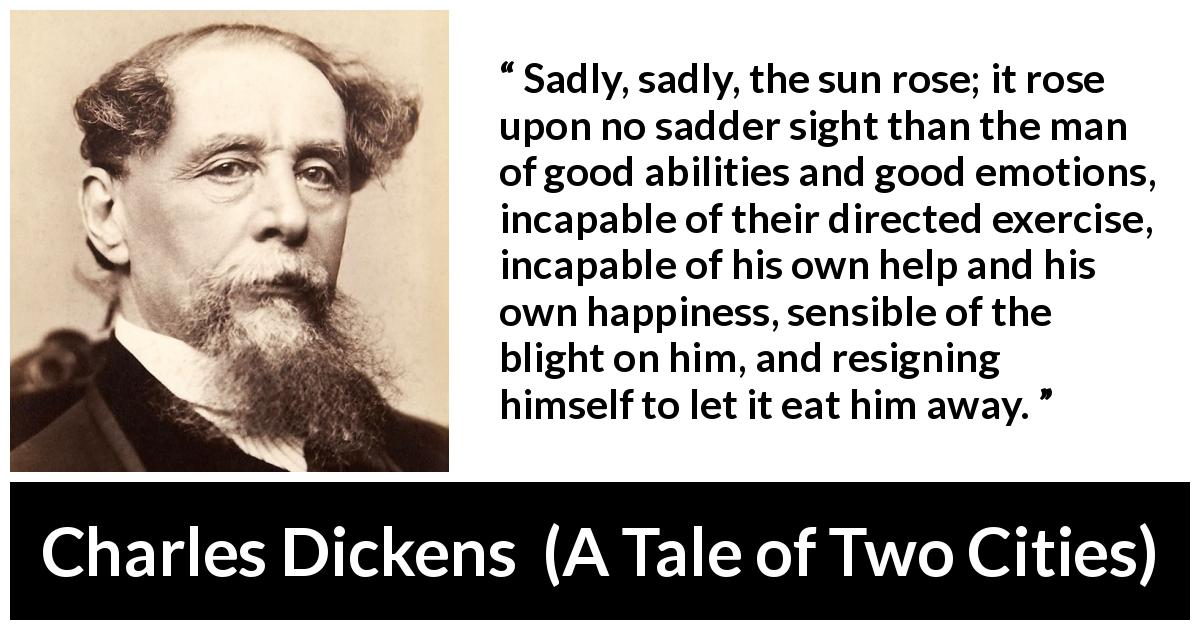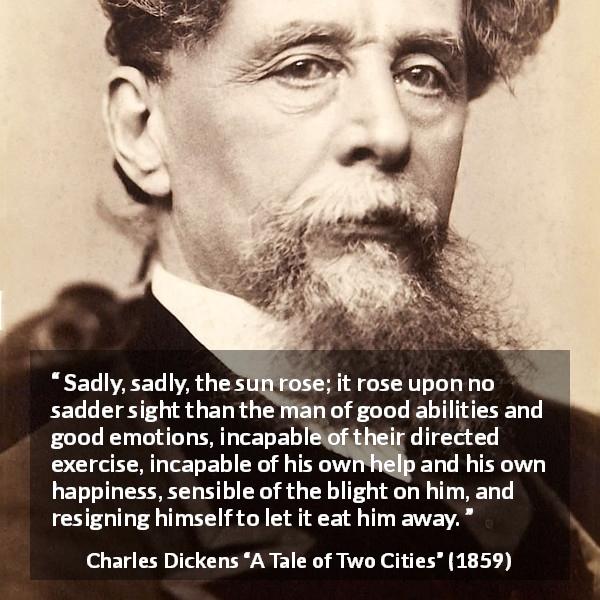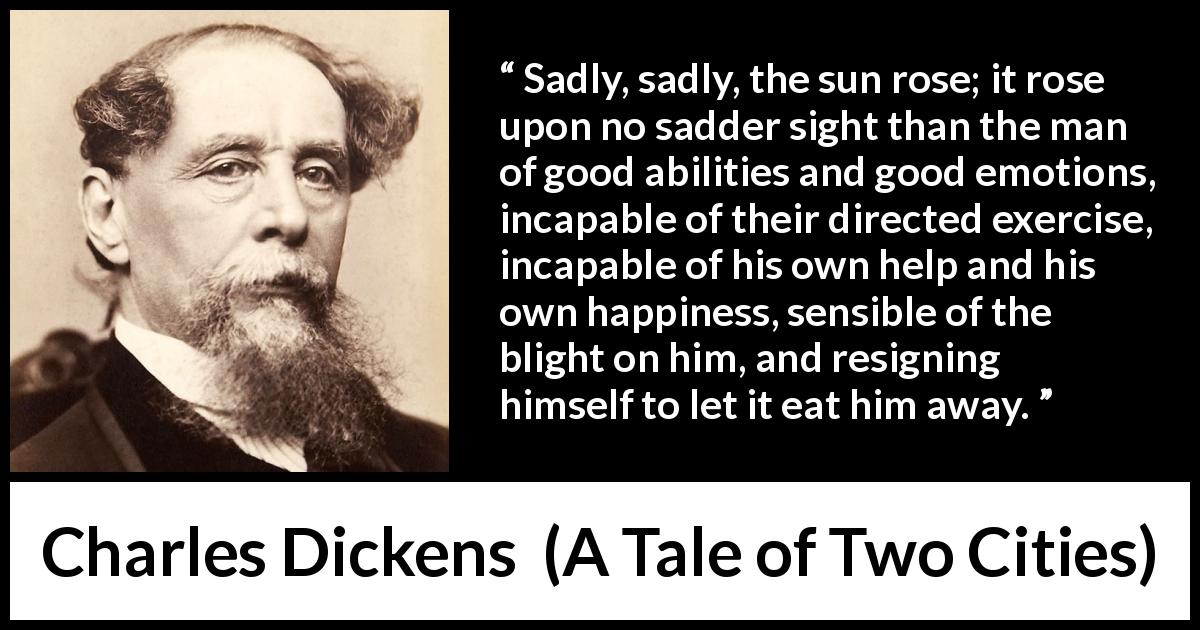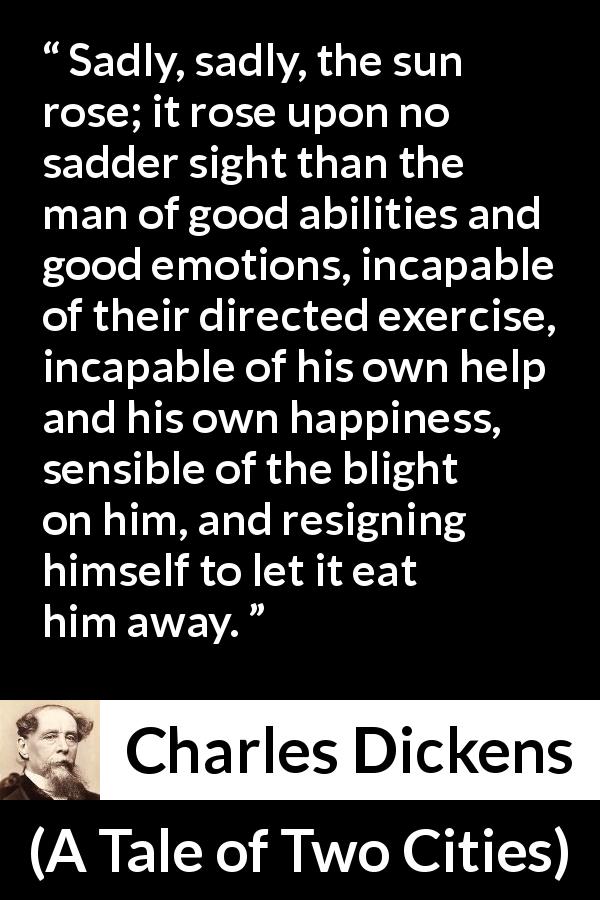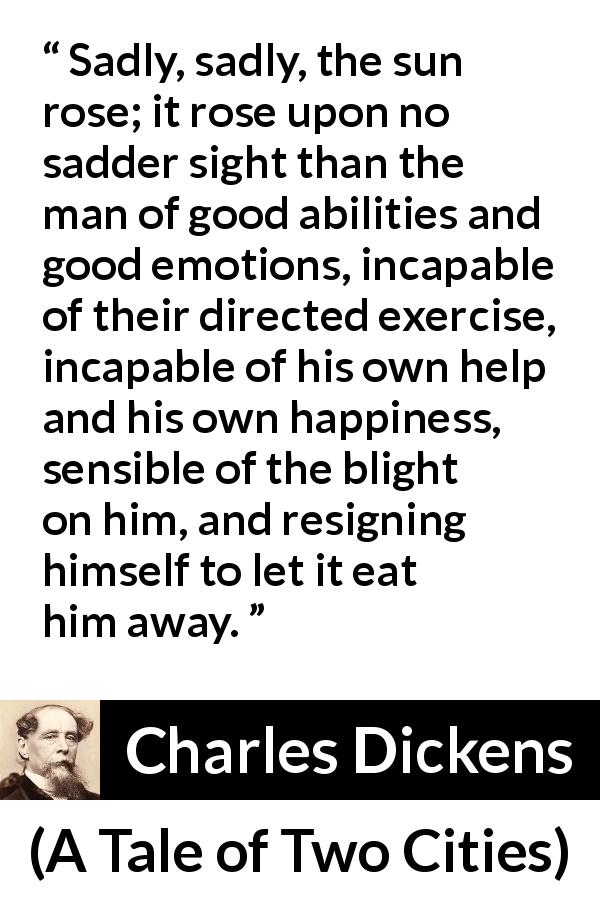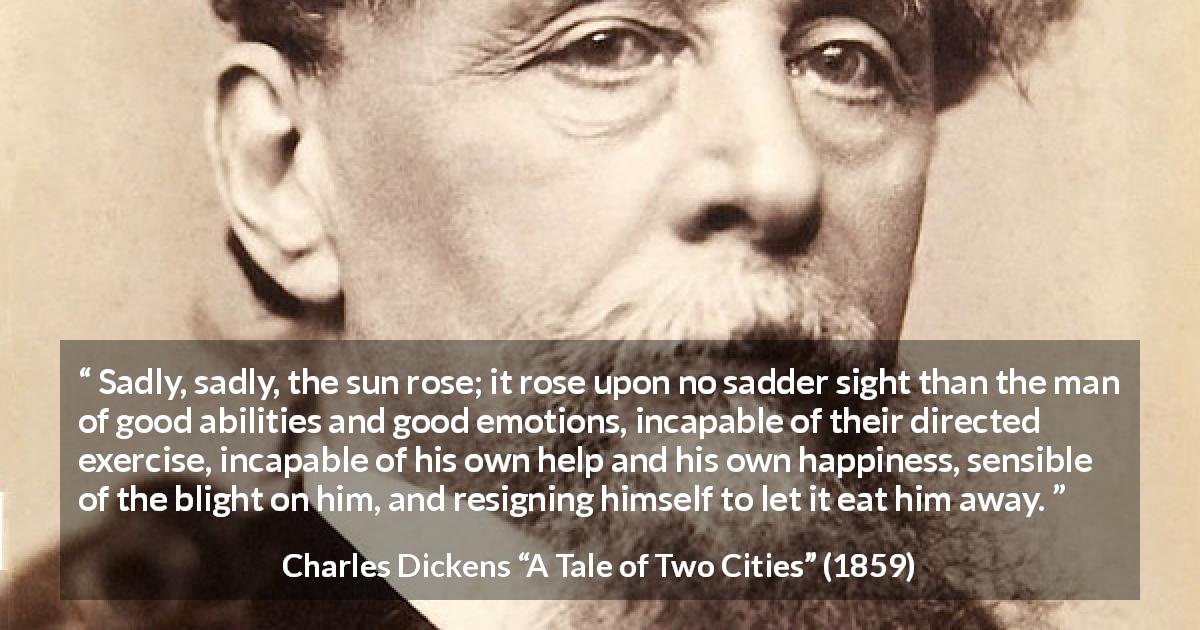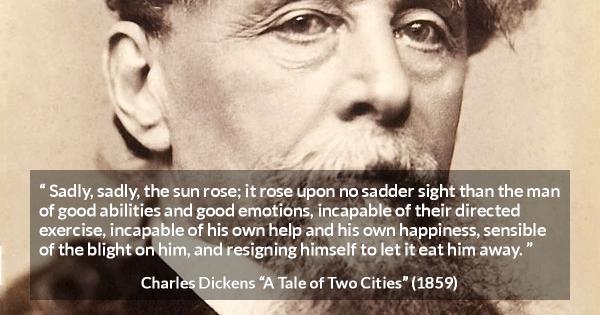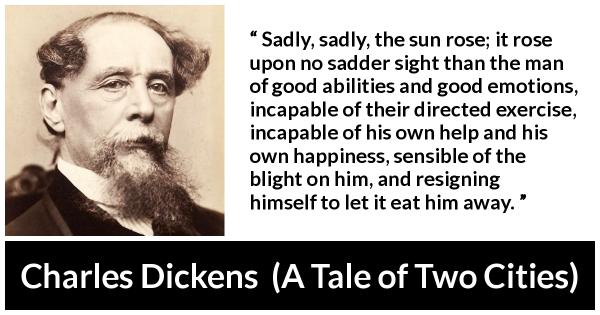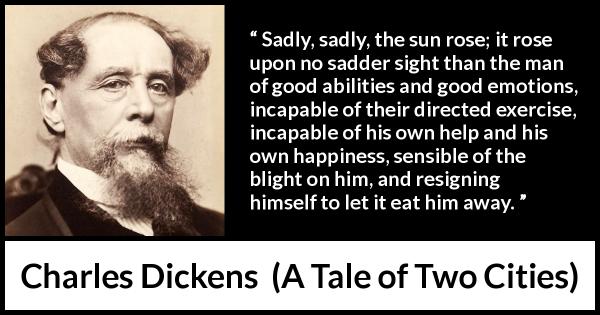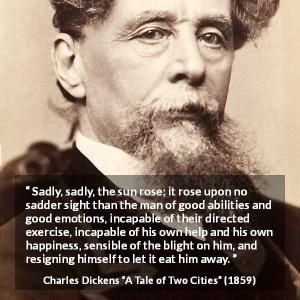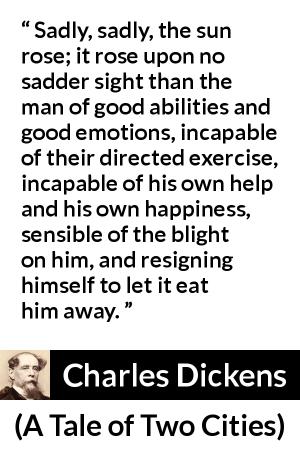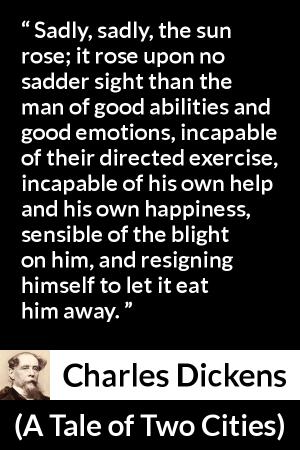“ Sadly, sadly, the sun rose; it rose upon no sadder sight than the man of good abilities and good emotions, incapable of their directed exercise, incapable of his own help and his own happiness, sensible of the blight on him, and resigning himself to let it eat him away. ”
Charles Dickens, A Tale of Two Cities (1859). copy citation
| Author | Charles Dickens |
|---|---|
| Source | A Tale of Two Cities |
| Topic | emotions happiness sun |
| Date | 1859 |
| Language | English |
| Reference | |
| Note | |
| Weblink | https://www.gutenberg.org/files/98/98-h/98-h.htm |
Context
“In the fair city of this vision, there were airy galleries from which the loves and graces looked upon him, gardens in which the fruits of life hung ripening, waters of Hope that sparkled in his sight. A moment, and it was gone. Climbing to a high chamber in a well of houses, he threw himself down in his clothes on a neglected bed, and its pillow was wet with wasted tears.
Sadly, sadly, the sun rose; it rose upon no sadder sight than the man of good abilities and good emotions, incapable of their directed exercise, incapable of his own help and his own happiness, sensible of the blight on him, and resigning himself to let it eat him away.
VI. Hundreds of People
The quiet lodgings of Doctor Manette were in a quiet street-corner not far from Soho-square. On the afternoon of a certain fine Sunday when the waves of four months had rolled over the trial for treason, and carried it, as to the public interest and memory, far out to sea, Mr. Jarvis Lorry walked along the sunny streets from Clerkenwell where he lived, on his way to dine with the Doctor.” source
Sadly, sadly, the sun rose; it rose upon no sadder sight than the man of good abilities and good emotions, incapable of their directed exercise, incapable of his own help and his own happiness, sensible of the blight on him, and resigning himself to let it eat him away.
VI. Hundreds of People
The quiet lodgings of Doctor Manette were in a quiet street-corner not far from Soho-square. On the afternoon of a certain fine Sunday when the waves of four months had rolled over the trial for treason, and carried it, as to the public interest and memory, far out to sea, Mr. Jarvis Lorry walked along the sunny streets from Clerkenwell where he lived, on his way to dine with the Doctor.” source
